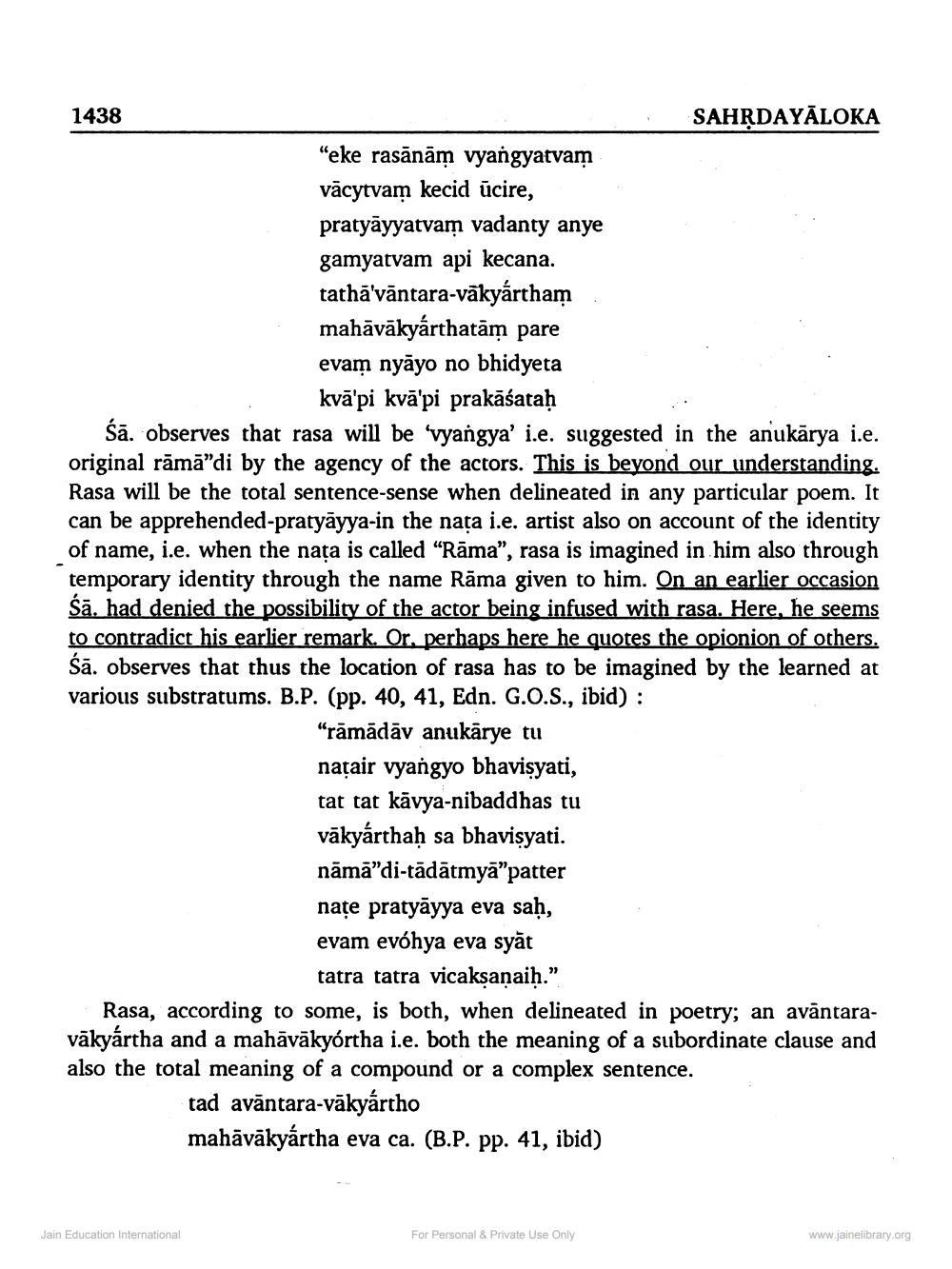________________
1438
SAHRDAYĀLOKA "eke rasānām vyangyatvam vācytvam kecid ūcire, pratyāyyatvam vadanty anye gamyatvam api kecana. tathā'vāntara-vākyártham mahāvākyárthatām pare evam nyāyo no bhidyeta
kvā'pi kvā'pi prakāśataḥ Śā. observes that rasa will be "vyangya' i.e. suggested in the anukārya i.e. original rāmā"di by the agency of the actors. This is beyond our understa Rasa will be the total sentence-sense when delineated in any particular poem. It can be apprehended-pratyāyya-in the nata i.e. artist also on account of the identity of name, i.e. when the nața is called “Rāma", rasa is imagined in him also through temporary identity through the name Rāma given to him. On an earlier occasion Śā. had denied the possibility of the actor being infused with rasa. Here, he seems to contradict his earlier remark. Or, perhaps here he quotes the opionion of others. Śā. observes that thus the location of rasa has to be imagined by the learned at various substratums. B.P. (pp. 40, 41, Edn. G.O.S., ibid) :
“rāmādāv anukārye tu națair vyangyo bhavisyati, tat tat kāvya-nibaddhas tu vākyárthaḥ sa bhavisyati. nāmā"di-tādātmyā"patter națe pratyāyya eva saḥ, evam evóhya eva syāt
tatra tatra vicaksaņaih.”. Rasa, according to some, is both, when delineated in poetry; an avāntaravākyártha and a mahāvākyórtha i.e. both the meaning of a subordinate clause and also the total meaning of a compound or a complex sentence.
tad avāntara-vākyártho mahāvākyártha eva ca. (B.P. pp. 41, ibid)
Jain Education International
For Personal & Private Use Only
www.jainelibrary.org




